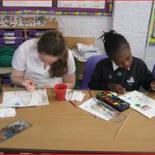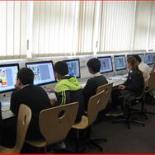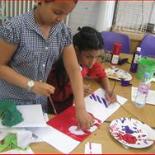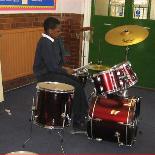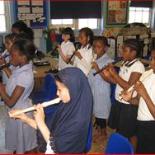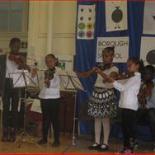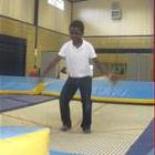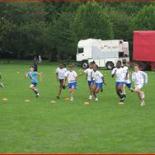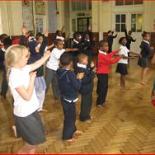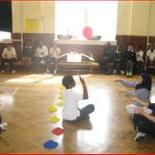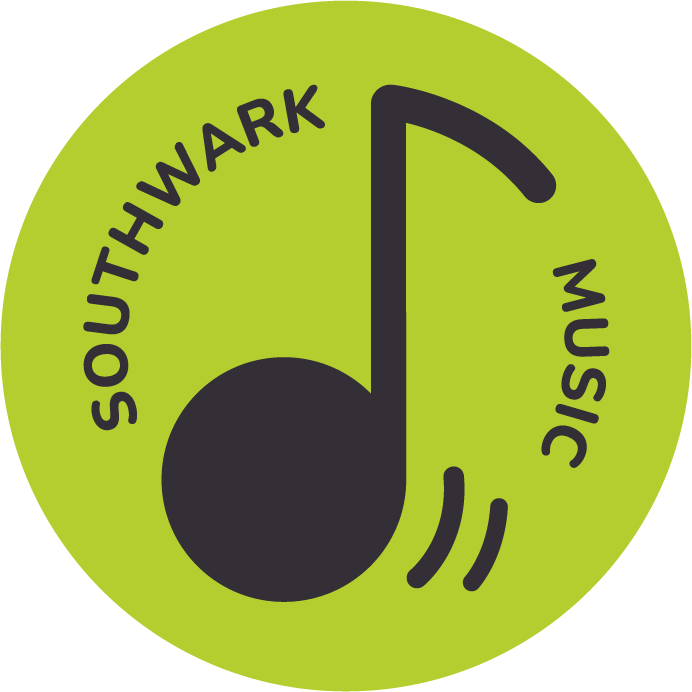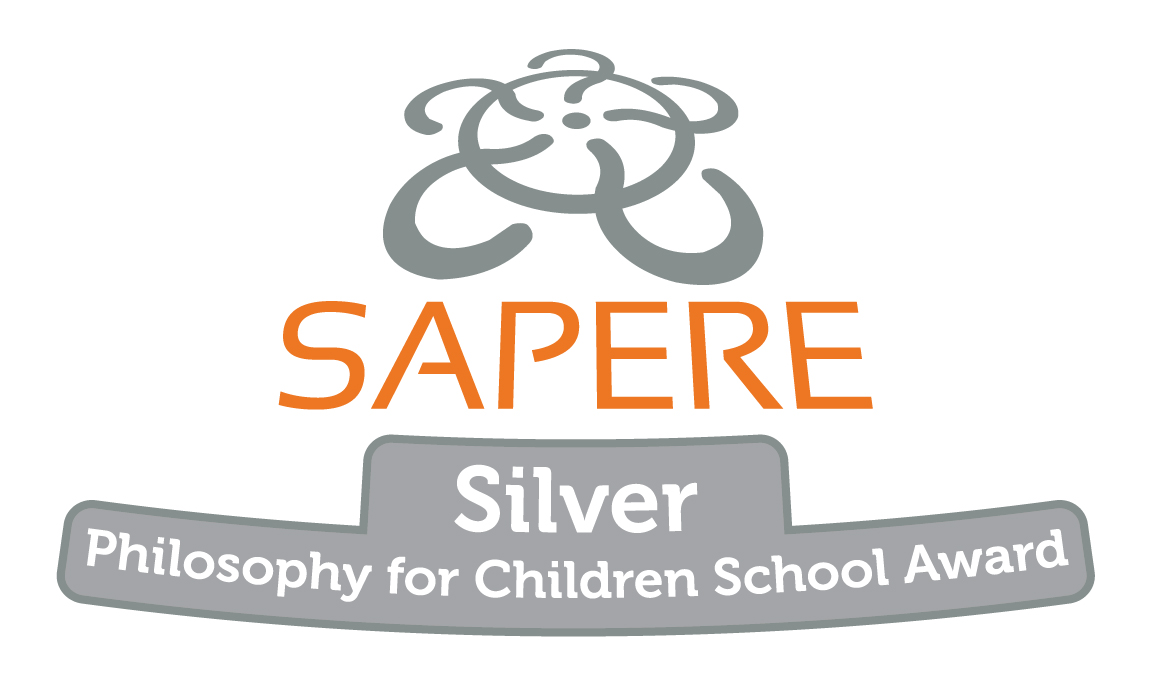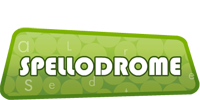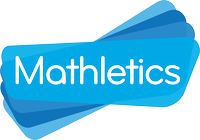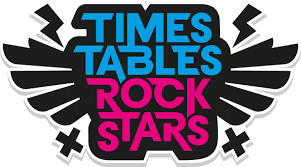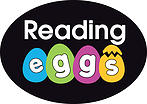Rationale
Our curriculum has been designed to raise standards and improve outcomes for the children throughout the federation. Children enter our schools with a wide range of needs and experiences, which are sometimes limited. Our approach has been developed to meet the needs of all our pupils and enrich their lives; whatever their starting point. Our diverse community and its multicultural heritage is instrumental in enriching our curriculum provision.
Our curriculum has been shaped to reflect the ethos, aims and values of our schools:
We learn and succeed together
Intent:
Creative learning helps to equip young people with the skills, ability, confidence and attitudes to enable them to work creatively and to transfer and apply knowledge in different contexts towards new and valuable goals. It encourages creative, critical and reflective thinking and produces excited, enthusiastic, enquiry-driven, active learners.
Our curriculum is planned to:
• help children to become INDEPENDENT, RESILIENT, ACTIVE learners
• be MEMORABLE, fun and engaging
• provide opportunities for children to be creative and allow time for them to explore and develop their own ideas, solve their own problems and use and apply skills – TINKERING
• be child centered and based on children’s interests, allowing them to direct the learning where appropriate
• have a strong focus on Literacy, including opportunities to read, write, speak, debate, discuss and question across a range of styles and subjects
• be broad, balanced and cross curricular, making links to prior learning, knowledge and skills so that the learning is meaningful
• encourage children to make informed choices
• be flexible and allow us to respond to personal, local and national events
Implementation:
Our curriculum is implemented through termly topics which are carefully planned to ensure that knowledge and skills are covered and progression occurs. We explicitly teach key skills and subject specific knowledge and vocabulary and build upon children’s knowledge and skills through a series of lessons.
Wherever possible, the topic is used to link core and foundation subjects together such as literacy, history, geography, art and design. Spiritual, Moral, Cultural and Social development opportunities are woven through our curriculum, alongside British Values, to support children’s personal development and prepare them for life in modern Britain.
We recognise that children have preferred learning styles, and so make allowances for this in our planning and delivery. We use a range of approaches including practical activities and discussions. Teachers plan using the termly planning sheet which is also shared with parents each term and displayed in the school entrance hall. Individual subjects may sometimes be ‘blocked’ to support teaching and learning. Children complete meaningful ‘homework projects’ that help to engage them in the topic.
How our curriculum is implemented can be found on our curriculum framework, topic posters, unit posters and planning.
There is an expectation that our curriculum is ‘knowledge-rich’. A knowledge rich curriculum is where knowledge is given great importance and is sequenced and taught in a manner that allows for this knowledge to be retained and built upon.
Teachers are encouraged to broaden the experience of the topics for the children using the rich local environment as a basis for learning and provide opportunities for outdoor learning and fieldwork, educational visits, visitors into school and shared experiences of the wider school community, e.g. involvement with parents and school links. Children typically go on a trip each half term.
Special events such as International Week help children to see the links between curriculum areas and also promote excitement for different subjects. They allow children to study subjects in more depth. Each year we learn about significant people who have had an impact on the world and encourage the children to challenge stereotypes. We also take on a whole school project linked to a local, national or global issue.
We value the diversity of individuals within the school. All children have equal access to the curriculum and are treated fairly regardless of race, religion or ability (see Inclusion Policy). Many of our Rainbow children integrate into sessions to meet their needs and interests. Where possible we identify children who have strengths or talents in the different curriculum areas. (See More Able and Talented Policy).
Impact:
The impact of our curriculum is monitored throughout the year by the Curriculum Leaders. This is done in a range of ways including:
- data analysis
- looking at children’s work and other evidence of outcomes
- lesson observations
- feedback from children
- feedback from teachers
Here are our key curriculum documents:
PRIMARY National Curriculum 2014
Bridges Curriculum Intent Handbook
End of year expectations Nursery
End of year expectations Reception
All current Topic Posters can be found on your child’s Google Classroom. Here are some examples of the topics we study:
You can read more about the achievements and successes across the curriculum in our Annual Report to Parents.
Early Years Foundation Stage
Children can start in our Nursery at the age of 3 years old. The Nursery and Reception Classes work together to provide a stimulating and exciting curriculum that encourages our children to develop across all areas of learning. For further information about the Early Years Foundation Stage, please see the EYFS Welcome Pack. (See our Admissions Policy for information about applying) (See our Assessment Page for information about the Baseline Assessment)
English
What we believe and why
At the Bridges Federation, we believe that Communication, language and literacy underpin lifelong learning. It is our duty to ensure every child can achieve their full potential by giving them these vital life skills.
Literacy develops children’s ability to listen, speak, read and write for a range of purposes, so using language to communicate ideas, views and feelings is fundamental.
Children are encouraged to express themselves creatively and imaginatively as they become enthusiastic and critical readers. We encourage pupils to use their knowledge, skills and understanding in speaking, reading and writing across a range of experiences and genres. Our Literacy Curriculum is planned to encourage and facilitate independent learning for all our children. We value the range of languages which are spoken in our community and use children’s ideas and experiences in planning lessons to ensure lessons are fun, engaging and challenging.
We have a wide range of good quality texts, software and hardware to ensure that children’s learning needs and interests are met.
What we offer
- High quality synthetic phonics taught daily in small groups (in EYFS, KS1 and where appropriate in KS2) following the Little Wandle program
- Daily reading sessions across the school (in addition to phonics)
- Trips and visits are used as a ‘hook’ to engage children with a lesson sequence
- Lessons are based on high quality texts
- Texts are used which make cross-curricular links with the class’ current learning
- High quality writing takes place in the Literacy lessons and across the curriculum
- What Makes Good (WMG) is used to establish and clarify what makes writing for different purposes successful
- Various opportunities for extended writing session across the curriculum
- New vocabulary is explored, displayed and its application is encouraged
- Handwriting is taught explicitly and children work towards a pen license
- Spelling, punctuation and grammar (SPaG) is taught within Literacy lessons and embedded across the curriculum
- Drama, speaking and listening are highly valued in the lesson sequences
- ICT is used to support learning using softwares such as Reading Eggs and Teach Your Monster to Read (iPads, Chromebooks and laptops)
- Targeted sessions for children who require additional support e.g. booster, Spelling strategies, precision reading
- Challenge and support is used to enable MAT (more able and talented) children to exceed
- Use of visuals
- Language rich environment
- Discussion in every lesson
- Classrooms display and working walls are helpful and reflect current learning
- Local Partners reading volunteers read with children across the school
- Summer reading cafés enable parents to visit the classroom and read with children
- Links to the Unicorn theatre and other local partners are made to enhance learning experiences
- World Book Day is celebrated
- Reading events take place in connection with the Young Readers’ Programme
- Reading for pleasure weekly session, every Friday (using an inspirational Text)
- Peer support/reading buddy programme across year groups
- Parent Workshops to join parents and carers together with their children’s learning
Little Wandle support for parents
Mathematics
At the Bridges Federation, we believe that mathematics is a creative activity involving imagination, intuition and discovery and should be an enjoyable experience for children. It equips pupils with the unique and powerful set of tools to understand and change the world. These tools include logical reasoning, problem solving skills and the ability to think in abstract ways.
We aim to encourage children to
- Gain a wide range and balance of relevant mathematical experiences
- Be challenged intellectually by mathematical ideas
- Gain confidence through appropriate experiences, enabling them to use a variety of strategies, and through celebrating success
- See how maths is relevant and useful in everyday life.
- Work independently and collaboratively to solve problems.
We strive to set work that is challenging, motivating and encourages the pupils to think logically and communicate ideas through oral and written mathematical language.
In 2015, the Bridges Federation maths team became a member of the London South East Maths Hub. This partnership enabled us to make the most of a robust professional development programme. In September 2016, we introduced the CPA approach to learning Mathematics. Based on the work of Jerome Bruner, it is a highly effective method to teaching that develops a deep and sustainable understanding of maths.
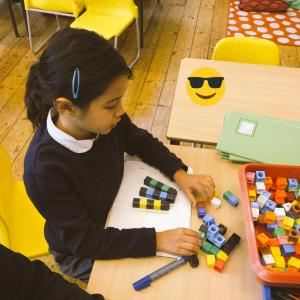
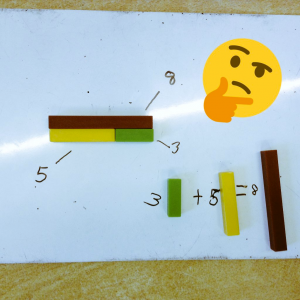
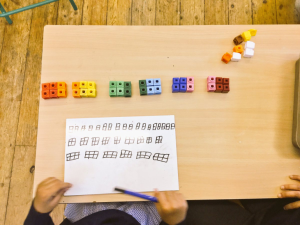
This Concrete, Pictorial, Abstract approach is about learning by doing. The children participate in activities to investigate and learn mathematical concepts and skills. They are provided with manipulatives to build meanings and understandings. Moving from concrete resources, the children reach the pictorial stage where they will be given ample opportunities to communicate and share their understanding using a pictorial representation to further consolidate the newly acquired concept or skill. The teacher, whose main role is to facilitate learning by providing appropriate scaffolding and feedback, will support the children to discover abstract mathematical concepts or results.
Mastery within our mathematics curriculum was another core area we focused on is this year. By adapting our medium term planner, we have made sure that pupils spend longer on particular topics such as place value and calculations so that they become fluent in these. Our spiral learning method ensures that pupils fully grasp basic concepts, building on their acquired skills and exploring the different concepts at greater depth. Problem solving has become an integral part of our maths lessons as each session begins with a problem the children need to explore in order to uncover the concept behind it. Hence developing their relational understanding as opposed to instrumental understanding as described by the mathematician Richard Skemp.
Through well chosen and constructed activities, teachers develop a problem solving culture in mathematics which challenges the children including the more able, by developing their problem solving skills such as reasoning, working systemically, conjecturing, working backwards and visualising.
Teachers have high expectations of all their pupils and our Maths lessons allow the children to overcome realistic obstacles by building confidence and persistence. Our children understand that learning is not attained solely through repeating successes, but by struggling with and overcoming difficulties.
In our endeavour to offer the best maths provision to our children and enhance our subject knowledge, we have built strong relationships with educational bodies. For example Snowsfields is part of the mathematics advisory team at the publisher ‘Rising Stars. We also work very closely with the award winning online educator 3P learning and one of our staff member is a certified lead educator for the Mathletics learning platform.
In order to raise the profile of maths across both schools there will be events such as ‘maths fair’ and the Unicef ‘World Maths Day’ arranged annually. We were really pleased that Snowsfields and Tower Bridge schools were chosen to kick start the Maths World Education Games and received a special visit from Rachel Riley the World Education Games’ patron.
At the Bridges Federation, we use rich ICT resources to promote mathematical learning. We are constantly looking for innovative ways to help our children engage with mathematics and enhance their interactivity and learner autonomy. Our home learning page includes many of the platforms children can access both at home and in school.
Watch the video to see our children working with Rachel Riley from Channel 4′s Countdown.
Practice your times tables https://www.mathschase.com
Science
Science
At the Bridges Federation our vision is to give the children a science curriculum which enables them to explore and discover the world around them so that they develop a deeper understanding of the world we live in. This involves a variety of practical, hands-on experiences that encourage curiosity and questioning.
Our aim is that these stimulating and challenging experiences help children secure and extend their scientific knowledge and vocabulary.
We believe that these opportunities will ensure that our children are confident, life-long learners who will continue to explore the world around them.
We have four key principles on which we base our teaching of science:
- Developing questioning and enquiring minds through a range of enjoyable and interesting experiences
- Enabling children to lead their own learning and develop the skills to make systematic enquiries
- Encouraging children to make links between their own experiences and other subject areas
- Developing and maintaining the natural curiosity of children about the world around them through a variety of investigations
Teaching and Learning
We use a variety of teaching and learning styles in science lessons. Our principal aim is to help develop children’s knowledge, skills and understanding.
- We do this through whole class teaching and engaging the children in an enquiry based activity.
- We encourage the children to ask, as well as answer, scientific questions.
- Children have the opportunity to use a variety of data, such as statistics, graphs, pictures and photographs.
- Children use ICT in science lessons where it enhances their learning.
- Children take part in discussions and present reports to the rest of the class.
- They engage in a wide variety of problem solving activities.
- Wherever possible we involve the pupils in ‘real’ scientific activities.
Computing
Our aim is for all children to develop confidence, skills, and discernment when using digital technologies.
The National Curriculum for Computing aims to ensure that all pupils:
- Understand the basic principles and concepts of computer science such as logic, algorithms, and data representation
- Have the ability to analyse problems in computational terms: writing computer programs in order to solve such problems
- Can evaluate and apply information technology, including new or unfamiliar technologies, analytically to solve problems
Following the Teach Computing scheme and ‘Computing at School’ (CAS) guidelines, our curriculum comprises three areas:
Computer Science (CS) – “Children are taught the principles of information and computation, how digital systems work, and how to put this knowledge to use through programming”.
Digital Literacy (DL) Enable the children to “use, and express themselves and develop their ideas through, information and communication technology – at a suitable level for the future workplace and active participants in a digital world”.
Information Technology (IT) – “Building on their knowledge and understanding of Computer Science, pupils are “equipped to create programs, systems and a range of content”.
We offer a range of extracurricular activities to enhance our computing curriculum, including:
Coding Clubs: Providing opportunities for pupils to extend their programming skills.
Webinars and Workshops: led by industry professionals to inspire and inform our pupils about careers in technology.
Competitions and Challenges: Encouraging participation in local and national computing competitions.
Our STEM leaders support both teachers and children and ensure that technologies are used effectively. They attend the Bett Show annually and come back inspired and full of creative ideas and recommendations to improve our computing provision. They also lead many events during Safer Internet Day.
Humanities
History
“History helps pupils to understand the complexity of people’s lives, the process of change, the diversity of societies and relationships between different groups, as well as their own identity and the challenges of their time.” – National Curriculum 2014
At The Bridges Federation, History is taught in a practical, cross-curricular way incorporating English, Geography, Art and many other subjects where possible. We review and adapt our planning to make lessons relevant and engaging for the children, whilst ensuring they are developing relevant skills that are transferable into later stages.
Each year group learns History through a chosen ‘Topic’ each term. The children are taught how to use specific skills in order to acquire Historical knowledge, which is constantly being built on and improved from the prior lesson.
Good quality History teaching aims to:
- develop an understanding of chronology
- gain knowledge and understanding of events, people and changes in the past
- understand how history is interpreted
- use different methods of enquiry
- explore how ideas are organised and interpreted
Children develop the following skills:
- asking perceptive questions
- thinking critically
- weighing evidence
- sifting arguments
- comparing and contrasting
- analyzing and interpreting sources of information
- developing perspective and judgment
Aims for Teaching and Learning History
Key Stage 1
Children begin to develop an awareness of the past, using common words and phrases relating to the passing of time. Children have the opportunity to use a range of materials and resources to enhance their learning and development within history. They learn where the people and events they study fit within a chronological framework and identify similarities and differences between ways of life in different periods. They use a wide vocabulary of everyday historical terms and are encouraged to ask and answer questions, choosing and using parts of stories and other sources to show that they know and understand key features of events. They should understand some of the ways in which we find out about the past and identify different ways in which it is represented.
Key Stage 2
In Key Stage 2 pupils continue to develop a chronologically secure knowledge and understanding of British, local and world history; establishing clear narratives within and across the periods they study. Children have the opportunity to use a range of materials and resources to enhance their learning and development within history. They are encouraged to make connections, note contrasts and trends over time and develop the appropriate use of historical vocabulary. They regularly address and devise historical questions about change, cause, similarity and difference, and significance. They are taught to construct informed responses that involve thoughtful selection and organisation of relevant historical information, accurately using relevant historical vocabulary. They learn how our knowledge of the past is constructed from a range of primary and secondary sources and that different versions of past events may exist.
Geography
At the Bridges Federation, each year group learns Geography through a chosen ‘Topic’ and Geography links are made in other areas of the curriculum wherever possible. The children are taught how to use specific skills in order to acquire Geographical knowledge.
Geography provokes and answers questions about the natural and human worlds using different scales of enquiry to view them from different perspectives. It develops knowledge of places and environments throughout the world, understanding of maps, and applies a range of investigative and problem-solving skills both inside and outside the classroom.
Geography is a focus within the curriculum for understanding and resolving issues about the environment and sustainable development. It is also an important link between the natural and social sciences. As children study geography they encounter different societies and cultures. This helps them realise how nations rely on each other. It can inspire them to think about their own place in the world, their values and their rights and responsibilities to other people and the environment.
The National Curriculum for Geography aims to ensure that all pupils:
- develop contextual knowledge of the location of globally significant places – both terrestrial and marine – including their defining physical and human characteristics and how these provide a geographical context for understanding the actions of processes
- understand the processes that give rise to key physical and human geographical features of the world, how these are interdependent and how they bring about spatial variation and change over time
- are competent in the geographical skills needed to:
- collect, analyse and communicate with a range of data gathered through experiences of fieldwork that deepen their understanding of geographical processes
- interpret a range of sources of geographical information, including maps, diagrams, globes, aerial photographs and Geographical Information Systems (GIS)
- communicate geographical information in a variety of ways, including through maps, numerical and quantitative skills and writing at length
Aims for teaching and learning Geography
Geography teaching and learning provides a means of exploring, appreciating and understanding the world in which we live and how it has evolved. Geography explores the relationship between the Earth and its people. It stimulates curiosity and imagination and we aim to build upon every child’s ‘personal geography’ by developing geographical skills, understanding and knowledge through studying places and themes.
The aim of our Geography curriculum is to:
- Develop children’s deeper understanding of both the human and physical world around them.
- Spark within children a lifelong curiosity and fascination about their world through active learning and enquiry.
- Encourage questions that look at how and why places change, how they compare to one another and how they are connected.
- Allow children to gain geographical knowledge through exploring and discovering their locality, using a range of creative mapping skills that over time broaden and enrich their understanding of the United Kingdom and the wider world.
At Key Stage 1 pupils develop knowledge about the world, the United Kingdom and their locality. They begin to understand basic subject-specific vocabulary relating to human and physical geography and begin to use geographical skills, including first-hand observation, to enhance their locational awareness. Local walks around our community are often used to help children understand their locality and its place within its wider geographical location.
In Key Stage 2 pupils extend their knowledge and understanding beyond the local area to include the United Kingdom and Europe, North and South America. This will include the location and characteristics of a range of the world’s most significant human and physical features. They develop their use of geographical knowledge, understanding and skills to enhance their locational and place knowledge.
Design Technology
Design and Technology
Design and Technology is an inspiring, rigorous and practical subject. Using creativity and imagination, pupils design and make products that solve real and relevant problems, within a variety of contexts, considering their own and others’ needs, wants and values.
At the Bridges Federation children are taught to select and use appropriate tools safely and effectively to make a product. In all areas of Design and Technology the children are encouraged to consider the effectiveness of their designs and requirements of the product. Every child will have the opportunity to learn and extend their understanding, experience and application in the use of technology in as wide a variety of situations as possible.
Cooking and nutrition
As part of their work with food, pupils should be taught how to cook and apply the principles of nutrition and healthy eating. Instilling a love of cooking in pupils will also open a door to one of the great expressions of human creativity. Learning how to cook is a crucial life skill that enables pupils to feed themselves and others affordably and well, now and in later life.
Aims and Objectives
- to deliver programmes of study for Key Stages 1 and 2 of the National Curriculum in Design and Technology;
- to develop imaginative thinking in children and to enable them to talk about what they like and dislike when designing and making;
- to enable children to talk about how things work, and to draw and model their ideas;
- to encourage children to select appropriate tools and techniques for making a product, whilst following safe procedures;
- to develop an understanding of technological processes, products, and their manufacture, and their contribution to our society;
- to foster enjoyment, satisfaction and purpose in designing and making.
Art and Design
At the Bridges Federation we feel that all of the children are entitled to experience the range of arts both as part of and in addition to, the creative curriculum we provide. Each year we enjoy a creative arts themed week which includes ‘International Evening’ that enables us to celebrate the rich, cultural and artistic pools we have at both schools. Through the arts we believe that our pupils will be given the opportunity to hone their skills of creativity and imagination. We feel that it offers an alternative context for learning through active involvement, visual, tactile and sensory experiences which give a unique way of understanding and responding to the world. It will also allow the children to make valuable judgements and aesthetic decisions, as well as develop their interpersonal skills and support them to engage with their surrounding environment. The arts provide opportunities to challenge, inspire and create a sense of identity through self-expression.
Aims and Objectives
- To deliver the creative skills/ programmes of study as described by the National Curriculum.
- To promote learning through a series of discrete lessons, cross-curricular learning and more open-ended topic based teaching.
- Develop practical skills and link them throughout the different terms of the academic year and throughout pupils’ school lives.
- Know that the art process leads to an outcome.
- Opportunities are given to allow artists to shine and hone their skills.
- Be critical and discuss aesthetics which appeal or do not appeal to them.
- Embrace the many creative arts experiences available in our local community.
Teaching and Learning Style
Art will usually be taught by the class teacher through the creative curriculum and stand-alone lessons. The lessons will usually be inspired by the current topic being studied to enhance the depth and breath of the learning. In addition, the school does work with outside agencies that come in and lead specialist lessons for the children, providing them with a range of experiences and expert training.
Music
WHAT WE BELIEVE AND WHY
At the Bridges Federation, we believe that our pupils are given the opportunity to hone their skills of creativity and imagination through music and to provide opportunities to challenge, inspire and create a sense of identity through self-expression. We believe that music, for example African drumming, is a powerful tool that helps children celebrate and explore the diverse heritage of our school community.
We aim to encourage children to
- Develop practical music skills and knowledge and to link them throughout the curriculum
- Know that progress in music skills leads to an outcome independently and collaboratively
- Develop resilience and teamwork
- Opportunities are given for musicians to shine and hone their skills.
- Be critical and discuss music, sounds, styles and instruments which appeal or do not appeal to them.
- Embrace the many musical experiences available in our local community.
The school does work with outside agencies that come in and lead specialist lessons for the children, providing them with a range of experiences and expert training. These can be: individual lessons for children or small groups for instrument lessons; whole class lessons taught by specialist teachers for music; or after school clubs lead by qualified instructors. The music curriculum is delivered in half termly blocks. Children in Years 4, 5 and 6 also have lessons in African Drumming from a specialist. The Federation buy into the Southwark Music Hub, offering excellent CPD, a progressive and age appropriate curriculum and support and advice for staff, including monitoring the quality of the music teachers.
School Music Development Plan
PE & PSHE & Relationships
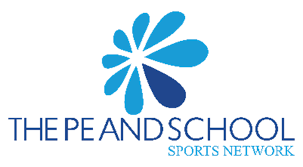 |
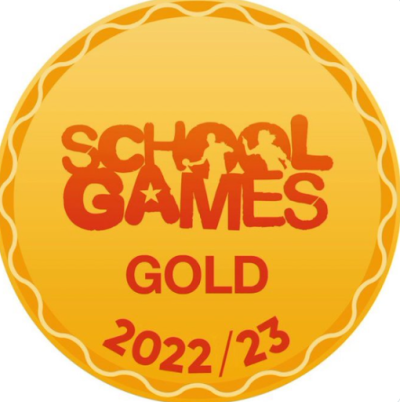 |
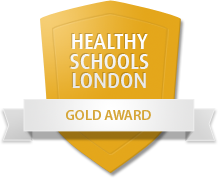 |
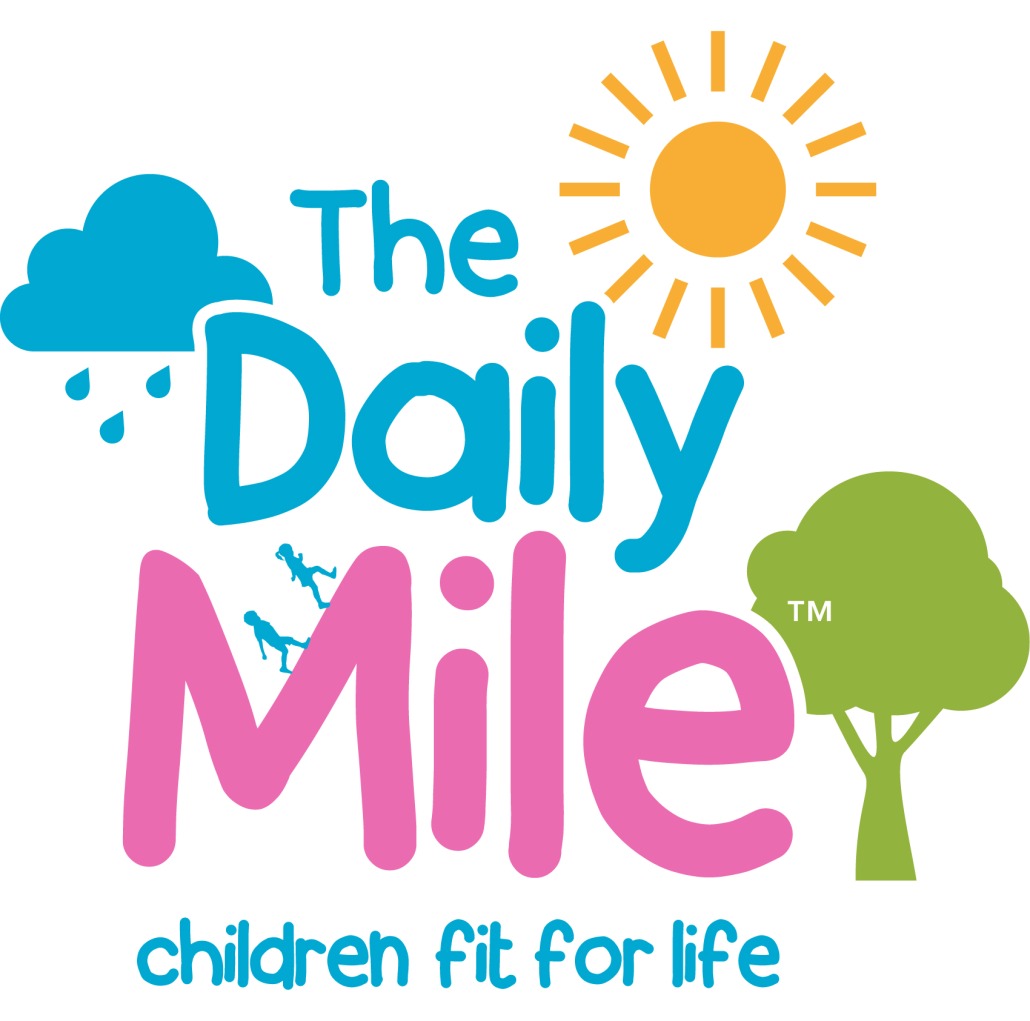 |
Physical Education
At The Bridges Federation, physical education is inclusive with all children being supported and stretched to achieve their personal best.
Our aims for each child is to:
- receive a minimum of two hours PE each week
- develop the fundamental movement skills they need to ensure they remain active later in life
- gain an understanding as to why physical activity is vital
- experience a range of different sports and skills
- celebrate their success and develop the drive to improve
- but mostly we want our children to enjoy being healthy and active.
Part of our PE curriculum focuses on agility, balance and coordination as well as the physical skills to participate in games and sports. The other part aims to develop the whole child with a focus on developing the children’s resilience, determination, creativity and teamwork.
Our curriculum promotes leading an active lifestyle through healthy eating lessons as well as trying new activities. Children taking part in Race for Life as well traditional field events.
All children take part in daily running to help improve their fitness and develop resilience. They all run a mile every day.
A specialist dance teacher teaches dance across the federation.
All children in Year 3 go swimming at local pools. They are taught by qualified swimming instructors and follow the STA programme.
STA_School_Swimming_Ticksheets
After-school clubs enable the children to develop their skills in a range of sports from football and basketball to dance and athletics. Lunchtime clubs also provide opportunities for our teams to practise ahead of competitions.
Key Stage 1 and Rainbow class partake in regular multi-skills festivals where they enjoy a range of non-traditional games design to develop their agility, balance and coordination. Key Stage 2 participate in inter school events and leagues.
Our schools also host teacher training CPD events, ensuring good relations with our partner PESSN, as well as providing regular training for our staff members.
Each school has four sports leaders who are responsible for promoting physical activity in the playground as well as encouraging others to make healthy choices at lunchtime.
Our recent School Games and Healthy Schools awards demonstrates our commitment to sport and our promotion of a healthy lifestyle at The Bridges Federation.
PSHE (see policy)
At the Bridges Federation, the aim of our PSHE curriculum, in line with the National Curriculum, is to promote pupil’s spiritual, moral, social and cultural development. Our PSHE lessons inspire children to understand the world around them and prepare them for adulthood. Using a range of approaches including P4C, we enable children to actively explore, discuss and debate PSHE concepts and themes thus promoting self-esteem and emotional development. We actively promote the children’s civil rights through our school’s vision and British Values to help them grow into responsible global citizens.
Aims
- to help pupils understand how they are developing personally and socially
- to enable pupils to tackle many of the moral, social and cultural issues that are part of growing up
- to teach about rights and responsibilities in order to support pupils to appreciate what it means to be a member of a diverse society
- to encourage pupils’ sense of self-worth as they play a positive role contributing school life and the wider community
- to enable pupils to recognise and build healthy relationships
Relationships (see policy)
The aim of Relationships education at the Bridges Federation is to help pupils develop self-respect, confidence and empathy. Pupils will learn about what makes healthy relationships, focusing on family and friendships, in a way that is age appropriate and sensitive to their beliefs and values. In the process they will develop a lifelong learning about emotions and relationships. This will include online relationships, and how to seek help if they feel unsafe. Teaching will respect the diversity of our families within the Bridges Federation’s school community.
Relationships education is compulsory in primary schools from 2020, so all pupils must take part in these lessons. Sex education is not compulsory for primary schools.
As part of science and health education lessons children will learn about the way their body changes as they grow. Lessons are tailored to suit the pupil’s maturity. Class teachers, subject leaders, inclusion managers and health professionals will discuss any specific needs e.g. SEND before these sessions take place. Parents are informed before the sessions are delivered and can view the teaching materials if they wish.
Religious Education
Religious Education, whilst not part of the National Curriculum is a statutory subject. Religious Education has a crucial role to play in creating a harmonious and cohesive society in modern Britain. Currently the law states that all pupils registered in school must be taught Religious Education.
In RE the children are taught about the Christian faith and also the faiths of the different groups that form our multi-cultural community in-line with Southwark’s Agreed Syllabus (the legal document all Southwark schools follow).
The RE curriculum is agreed by the Standing Advisory Committee on RE (SACRE), which is made up of Southwark councillors, teachers and faith group representatives. This ensures that each faith group has agreed that the way their faith is taught is fair and comprehensive. They have also agreed that children from their faith will learn about the beliefs of others.
As a school, we like to encourage discussion and debate from all children regardless of their beliefs, and we promote respect and tolerance of beliefs of others.
Religious Education has an important part to play in promoting the spiritual, moral, social, cultural and intellectual development of our pupils and in helping them to gain a greater understanding of themselves and a more sympathetic awareness of the needs of others. This enables pupils to be better equipped to cope with the responsibilities and experiences of adult life.
Children will learn to understand the world and their place in it, know that all members of the school community show respect and tolerance for others and develop a better cultural awareness. Thinking skills will be developed through child-led philosophical discussions.
RE encourages children to be inquisitive and ask challenging questions about the meaning and purpose of life, beliefs about God, the self and the nature of reality, issues of right and wrong, and what it means to be human. It can develop children’s knowledge and understanding of Christianity, of other principal religions, other religious traditions and worldviews that offer answers to questions such as these.
Through our teaching we aim to promote:
- a deep understanding of the importance of faith and spirituality to many people
- an awareness that some people have no faith
- an understanding of the similarities rather than the differences between different religions, in order to promote tolerance and acceptance within our multi-faith society
Children are taught the knowledge, skills and attitudes as outlined in the Southwark Agreed Syllabus. It provides a single point of reference encompassing statutory requirements, good practice and recommendations.
British values
British values are embedded in the RE curriculum. Exploration of the main different religions practiced in the UK enables children to develop tolerance of those of different faiths and beliefs. Stimulating discussions and activities in our RE lessons provide opportunities for children to show mutual respect and understanding for each other. Children are able to learn about others’ faith and beliefs and make comparisons with their own. Children are encouraged to reflect on their community’s beliefs as well as explore spirituality on an individual level.
Through school visits and external visitors we teach children the importance of celebrating differences and similarities in our community and the wider world.
The aim of RE as stated in the Southwark Agreed Syllabus links RE with six forms of development: intellectual, spiritual, moral, social, cultural and emotional.
Intellectual Development
RE has a key role in promoting children’s intellectual development by fostering skills to enable the exploration of issues that warrant philosophical or ethical enquiry. Children are encouraged to reflect on and communicate their own thoughts, feelings, beliefs, attitudes, values and aspirations, as well as engage in sustained discussion of others’ viewpoints. They are taught to analyse and evaluate ideas, weigh up issues of right and wrong, interpret and apply symbolism, investigate and explain the place and importance of religious and secular beliefs and teachings in the lives of individuals, groups and societies.
Spiritual Development
Children are encouraged to reflect on the religious and moral values that are part of our multi-cultural British society. We aim to develop our children spiritually by supporting them to gain the ability to be reflective about their own beliefs, religious or otherwise that informs their perspective on their life and shows an interest in and respect for different people’s faiths, feelings and values.
Moral Development
Children’s understanding of morals is developed primarily through story telling in RE. Exploration of characters’ behaviours in religious stories and parables supports children in recognising the difference between right and wrong and understanding the consequences of behaviour and actions. Through guided and independent reflection children are expected to readily apply this understanding in their own lives.
Social Development
RE has a key role in promoting children’s social development by fostering skills to enable the exploration of their own growing sense of identity, place in society and different experiences of community. Children explore a range of social issues relating to the quality of life in contemporary society, how religious teachings have shaped and influenced different communities and societies, and how religion has inspired individuals with a sense of social responsibility that has generated great social change historically.
Cultural Development
Through RE, we enable children to understand and appreciate the wide range of cultural influences within school and beyond our local community that have shaped their own heritage and that of others in preparation for life in modern Britain. Children are encouraged to gain an interest in exploring, improving their understanding and showing respect for different faiths and cultural diversity. The RE curriculum instils in children to understand, accept, respect and celebrate diversity, through their tolerance and attitudes towards different religions, ethnic and socio-economic groups in the local, national and global communities.
Emotional Development
RE has a key role in promoting children’s emotional development by fostering skills to enable the exploration of the relationship between our emotions and ability to learn; the skills that underpin our roles as effective communicators; and the many ways in which we use empathy to understand the feelings and opinions of others. We encourage children to motivate themselves and to see a purpose in what they are doing, developing the way in which positive relationships can occur.
Withdrawal from Religious Education
Parents have the statutory right withdraw their children from RE. However, the Southwark Agreed Syllabus has been constructed in the hope that parents will rarely, if ever, wish to exercise their right of withdrawal, and will be prepared to explore with the school ways in which their child can receive their RE education.
Modern Foreign Language
At the Bridges Federation we teach French to all children in KS2 as part of the school curriculum. We feel that many children enjoy learning to speak another language and by exposing them to a foreign language early in their development, the faster they will acquire the language. Additionally, children at primary school age feel less self-conscious when speaking aloud in another language allowing them to maximise every opportunity to practice their new linguistic skills. It is widely believed that the early acquisition of a foreign language facilitates the learning of other foreign languages later in life. We also recognise that many of our children speak French as their first language and wish to celebrate this within our school. Modern Foreign Languages is the development of children’s linguistic competence. It should be seen as a life-long skill. Learning a language opens up avenues of communication and exploration as well as promoting, encouraging and instilling a broader cultural understanding.
Aims and Objectives
- To foster an interest in learning other languages;
- To introduce young children to another language in a way that is enjoyable and fun;
- To make young children aware that language has structure, and that the structure differs from one language to another;
- To help children develop their awareness of cultural differences in other countries;
- To develop their speaking and listening skills;
- To lay the foundations for future study.
Teaching and Learning Style
We use a variety of techniques to encourage the children to have an active engagement in the modern foreign language: these include games, role-play and songs (particularly action songs). We often use puppets and soft toys to demonstrate the foreign language, and when possible also invite native speakers into the classroom, in order to expose the children to more than one voice in the foreign language. We frequently use mime to accompany new vocabulary in the foreign language, as this serves to demonstrate the foreign language without the need for translation. We emphasise the listening and speaking skills over the reading and writing skills. We also use a multi-sensory and kinaesthetic approach to teaching, i.e. we try to introduce a physical element into some of the games, as we believe that this serves to reinforce memory. We make the lessons as entertaining and enjoyable as possible, as we realise that this approach serves to develop a positive attitude in the children to the learning of modern foreign languages. We build children’s confidence through constant praise for any contribution they make in the foreign language, however tentative.
Philosophy for Children
Philosophy for Children (P4C) was devised for 6-16 year olds by Professor Matthew Lipman and has been developed over 35 years. Research shows how using P4C regularly with children improves behaviour, motivation and learning. It helps children develop their social, emotional and cognitive skills.
P4C is used within The Bridges Federation to challenge pupils and staff to think and question more deeply. It allows children to discuss creatively and openly about their thoughts and feelings within a safe community of enquiry. Across the federation teachers have been trained in level 1 and level 2 P4C by Sapere, the Society for the Advancement of Philosophical Enquiry and Reflection in Education.
Skills P4C develops across the curriculum:
- Learning to learn
- Developing speaking and listening
- Questioning skills
- Respect for other opinions
- Reasoning skills
- Turn taking
- Linking ideas and making connections
- Democracy – voting for questions
- Taking risks
A community of enquiry is established when the children are given a stimulus to consider. From this, themes and ideas are discussed and philosophical questions are created. Children then vote and decide which question they would like to investigate further through a facilitated discussion. Children are encouraged to listen, consider and reflect on the enquiry.
Enrichment
We offer a wide range of additional opportunities to enrich the learning at school. These are enhanced by the partnerships that the school has with local organisations and businesses.
All classes go on a number of trips each year which are linked to the topic they are studying in class. We are so lucky to be situated in the heart of London and ensure that we make the most of this, bringing learning to life and making lessons more interactive. Our partnership with some local businesses helps us to keep the cost of these trips at a minimum. Parents and Carers will be asked for a voluntary contribution, often only £1, towards the cost of any planned trip for their child.
We take part in a number of charity events chosen and organised by our school council such as Children in Need, NSPCC and Race for Life where the children raise money to help those less fortunate than themselves.
We also offer a number of Speciality Weeks and events throughout the year. International week links with Black History Month and has focused on successful women in history and the anniversary of the Empire Windrush in recent years. Disability Awareness Day, Safer Internet Day and World Book Day are also days celebrated in our schools and are a great way to raise awareness.
Our partnership with the Unicorn Theatre ensures that every child enjoys a visit to the theatre, and this is planned to link with their class topic where possible.
You can see all the events and activities the children took part in last year in our Annual Report to Parents at the top of this page.
Year 5 and 6 Residential at Kingswood, Grosvenor Hall, Ashford, Kent
During Year 5 and 6 the children get the opportunity to go for two days and one night to the Kingswood Centre in Kent. They take part in a range of activities including Orienteering, Raft Building and high ropes. We offer a payment scheme to help spread the cost. Parents and Carers are only asked to pay part of the overall cost and the school pays the rest through donations, fundraising and grants. If any parent is having difficulty paying they can speak to our Business Manager to see if they are entitled to apply for free board and lodging. For more information follow the link below.
Home Learning
We believe that homework should encourage pupils to become more creative and independent learners and also be an opportunity for parents and children to work together. Homework projects are set for the children each half term. The projects are linked to the topics being studied in class. We expect all pupils to read every night and complete their reading journals. They are also expected to learn basic maths skills, such as their times tables.
Here are some examples of past homework we have set:
Google Classroom
All classes now use Google Classroom. Each child has been given their own log in details. Below is a guide on how to use Google Classroom. Your children’s teacher will update regularly with activities for your children to complete at home, remember to tweet us all the brilliant work you are doing. Please contact the school office if you have any problems.
To access your Google Classroom please click on the following link and then log in:
Here are our remote learning expectation sheets for parents:
KS1 & KS2 Home Learning Expectations
EYFS Home Learning Expectations
KS1 & KS2 Home Learning Expectations (paper pack copy)
How to use Google Classroom on Xbox One & Xbox Series X/S
The Xbox consoles each have access to Microsoft Edge – the web browser that comes preinstalled as part of the Xbox user experience. This can be used to access Google Classroom (or another online education service approved by your child’s school).
- Plug a wired keyboard into your Xbox One, Xbox Series X or Xbox Series S via one of the USB ports on the front or back.
- Press the Xbox button top-centre of a game controller and head to “My games & apps” in the side menu.
- Click on “See all”, scroll down to “Apps” and you will see Microsoft Edge in the icons on the right-hand side. Open it.
- Type classroom.google.com into the URL bar at the top and log in as you would on a PC using your school Gmail account.
- You can either use an Xbox controller to move the cursor or a separate USB mouse plugged into one of the other ports.
How to use Google Classroom on PS4 & PS5
The PlayStation 4 has its own web browser that is easy to find on the PlayStation 4 (in the content menu as an icon with WWW written on it). However, it’s currently a bit trickier on PS5, as there is no way to open the browser natively.
Instead, you can open the System Settings, then the User Guide. This will open up an online user manual inside a web browser page so you only have to change the URL at the top. Otherwise, the rest of the steps are the same.
- Plug a wired keyboard and/or mouse into the USB ports on the PS4 or PS5 – each console should recognise them.
- In the URL bar of the browser, type classroom.google.com and then log in using the details provided by your child’s school.
- You can now access Google Classroom.
In some cases you might not be able to do everything you can on a laptop or PC, but you can, at the very least, access Google Classroom and see what work your teacher has assigned for you to do.

